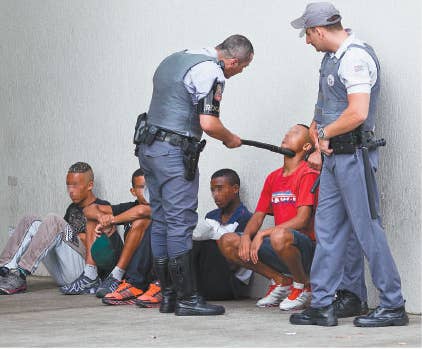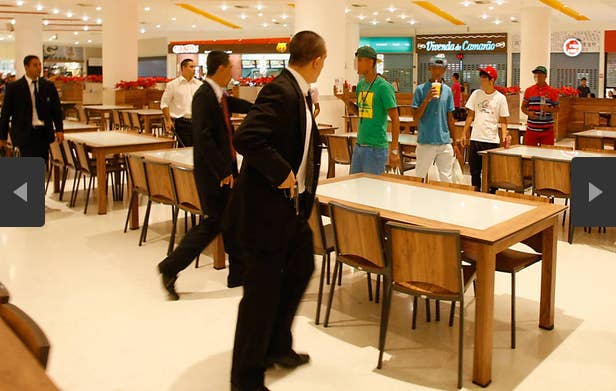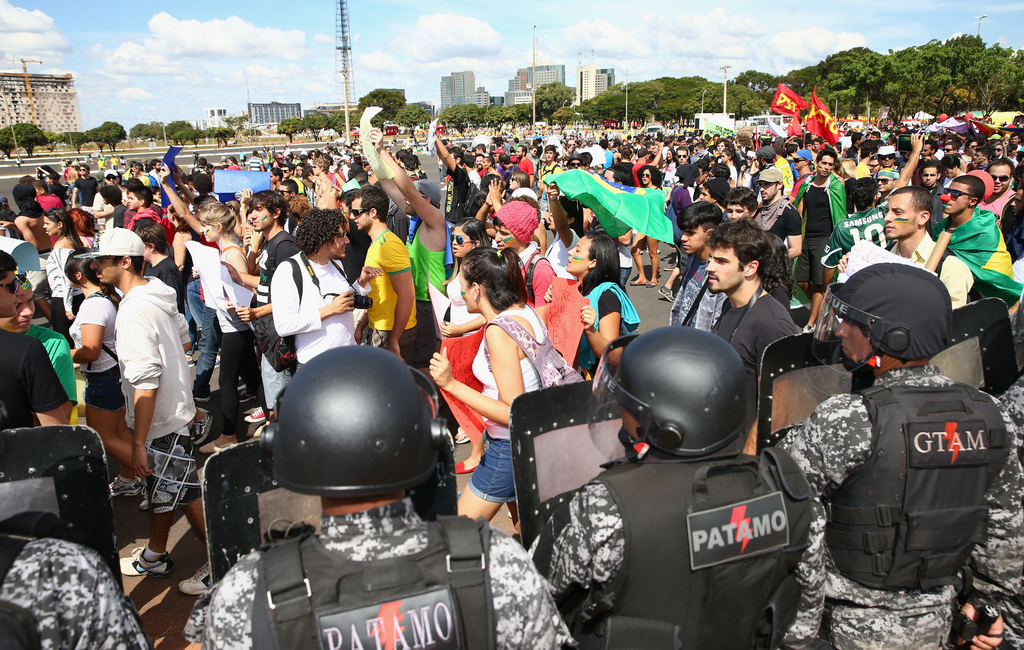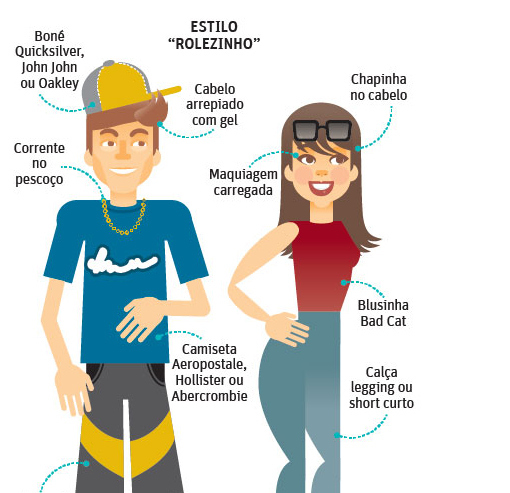Six months before the World Cup, Brazilian authorities are openly worried about flash mobs of "rowdy Brazilian youths," who are reportedly trashing shopping malls.

The youths, known as "rolezhinhos," organize on social media.

The teens sometimes have pitched fights with police.
View this video on YouTube
Police were called to a shopping mall in eastern Sao Paulo to break up a crowd of about 1,000 teenagers. Cops allegedly used tear gas, rubber bullets, and batons to disperse the group, according to videos taped by the participants posted on social media networks. Three people were subsequently detained.
The shopping mall flash mobs are allegedly connected to "black bloc" protesters who sparked violent confrontations amid large anti-government protests last year.

A month ago, Brazil's sports minister Aldo Rebel told an audience at a build-up event for the World Cup draw that the country has "cases of violence in our cities, violence with social origins, common crime, robberies. This is something we are trying to fight against. ... We are trying to contain this violence. We know our country may be harmed when this violence is seen by the world, as would any country where violence exists." Only minutes earlier, Rebel's deputy Luis Fernandes had guaranteed the safety of fans traveling into the country for the event.
These incidents have renewed concerns about Brazil's preparation for the World Cup, which starts on June 12. Many believe the ongoing crime troubles and protests have come in response to the event, which has cost Brazil an estimated $11 billion.
Two months earlier, leaders of some of Brazil's most-feared gangs warned that they would order a wave of terrorist attacks during the World Cup if authorities transferred their jailed bosses to a solitary confinement unit in the state of Sao Paulo.
Brazilian authorities have struggled to keep peace and order in recent months, most notably at the Confederations Cup in June, when hundreds of thousands of protesters caused unrest in all six cities that hosted tournament games. At least six deaths were connected to the protests. ESPN.com's Wright Thompson wrote: "There's really no way to know if the World Cup will come and go peacefully or if a million people will once again demand change."
"Rolezinho Style"

The rolezinhos have picked up a measure of glamor. Folha de S. Paulo — a top Brazilian newspaper — offered a style guide Wednesday for dressing like the youths who make up the mobs. But to combat with the "rolezinhos," at least one mall in Sao Paulo has warned that anyone participating in the flash mob could face a fine of up to $4,500 under court order.
Others - including Átila Roque, the head of Amnesty International in Brazil — have complained that these sorts of efforts are discriminatory and could constitute racial profiling.
In a post about the phenomenon on her blog, "Adventures of a Gringa", New York-based writer Rachel Glickhouse said race, economic tensions, and a lack of public space, among other issues, have exacerbated tensions about "rolezinhos." Glickhouse also argues they are neither "explicitly political in nature; they're meant to be social, as well as for flirting and meeting members of the opposite sex," nor connected to security concerns about the World Cup.
Non-government organizations and social movements have scheduled a protest in Sao Paulo's JK Iguatemi mall on Saturday to denounce discrimination against "young blacks, the poor, and fans of funk music." Sao Paulo Mayor Fernando Haddad has also responded, saying his administration will expand and improve recreational facilities for "underprivileged youths in need of healthier outlets."

